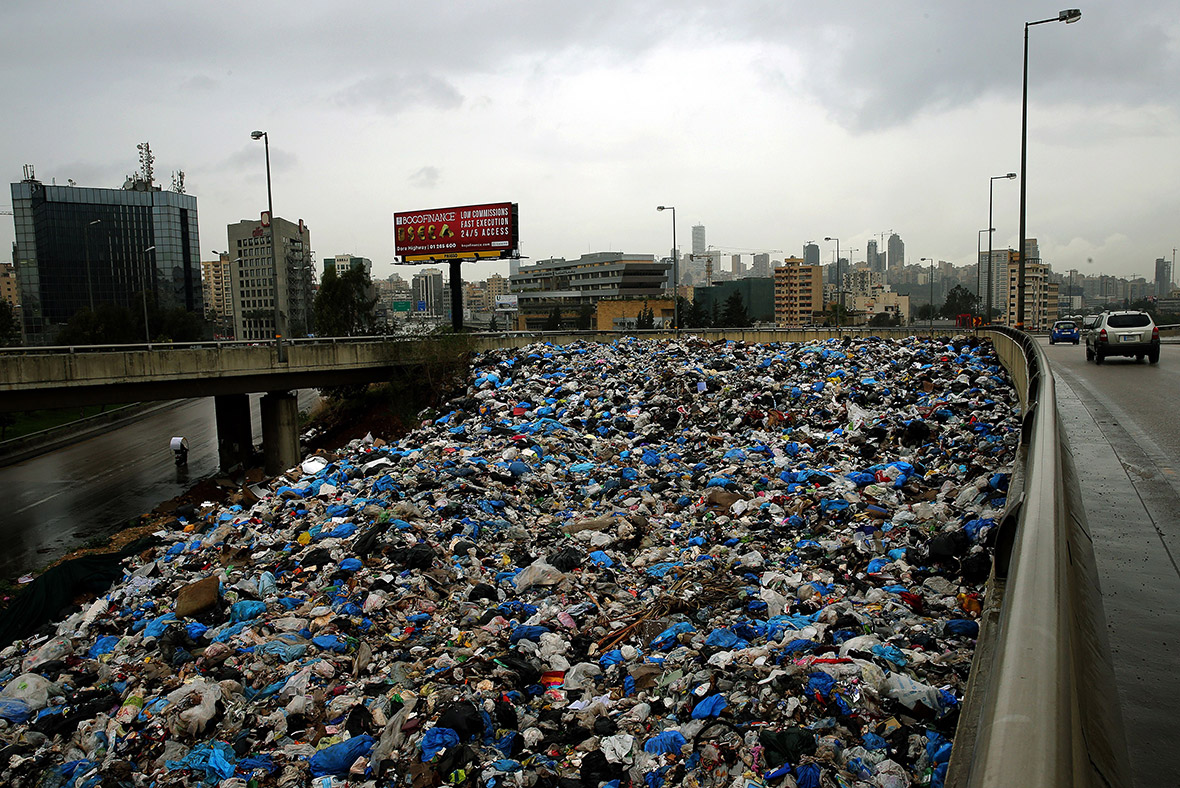Lebanon's solution for the mountains of rubbish around Beirut: exporting it to Europe
Mountains of stinking rubbish are piled up on the outskirts of Beirut, reaching the height of motorway overpasses. Mounds of rotten waste crawling with maggots fester near the mouth of the city's river, leading to a fly infestation. In the Lebanese capital itself, the streets are now kept fairly clear of rubbish. Instead, waste is pushed to the periphery.










Rubbish has been dumped in rivers, leading to major health concerns. Water pollution due to sewage and domestic waste is of major concern because diseases such as typhoid, cholera, jaundice, dysentery and diarrhoea are infectious and spread through contaminated water.
Just before Christmas, Lebanon's cabinet agreed to export the country's waste after a crisis that led to a wave of protests threatened the downfall of the government. Two foreign companies – British waste-to-energy firm Chinook Urban Mining and Dutch waste management firm Howa BV – are close to being awarded 18-month contracts to transport Lebanon's waste to Europe by sea.
Prime Minister Tammam Salam had previously expressed frustration at the failings of his cabinet, which struggled to resolve the rubbish problem after the closure of Beirut's main rubbish tip in July 2015. Calling it a "catastrophe" following "years and years of neglect", Salam had threatened to resign as protests calling for a solution to the rubbish crisis turned into calls for the cabinet to step down.
Anger about the heaps of rubbish festering as the heat boiled over in summer 2015, as thousands took to the streets in protests against a government deemed so dysfunctional it couldn't hold elections or pick a president, much less deliver basic services. The "You Stink" protests, which began as peaceful demonstrations, turned violent, and police fired tear gas and water cannons at the protesters in running battles on the streets of Beirut.
The rubbish crisis echoes wider problems facing Lebanon. The weak state has long been criticised for failing to develop the country and its infrastructure. Beirut still suffers daily power cuts 25 years after the end of the 1975-1990 civil war.
© Copyright IBTimes 2025. All rights reserved.






















